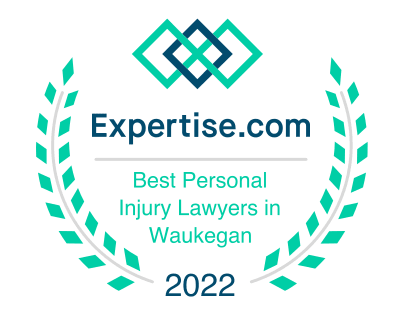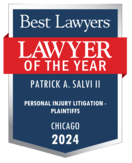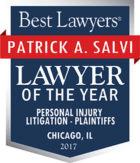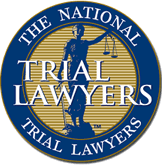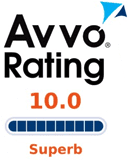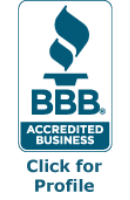Cancer-Causing Sunscreens
Johnson & Johnson announced on July 14, 2021, that it recalled some of its aerosol sunscreen products after finding trace amounts of benzene. Benzene is a known carcinogen that can cause cancer, depending on the length and level of exposure. If you use sunscreen containing benzene and believe that your cancer may be related to it, the product liability attorneys at Salvi Schostok & Pritchard can help.
When a dangerous product causes harm to consumers, they have the right to pursue compensation from the negligent manufacturer through a product liability case. Consumers can recover compensation for medical expenses, lost income, pain and suffering, and other damages if successful. Our lawyers have recovered more than $2.0 billion in verdicts and settlements, including 270 multimillion-dollar verdicts and settlements. Let us put our vast experience to work on your case. Contact Salvi Schostok & Pritchard at (312) 372-1227 or through our online form for your free case review.
Which Sunscreens Have Been Recalled?
The recalls affect five Johnson and Johnson products, including some Aveeno and Neutrogena products. The sunscreens that have been recalled include:
- Neutrogena® Beach Defense aerosol sunscreen
- Neutrogena® Ultra Sheer aerosol sunscreen
- Neutrogena® Invisible Daily defense aerosol sunscreen
- Neutrogena® Cool Dry Sport aerosol sunscreen
- Aveeno® Protect + Refresh aerosol sunscreen
The product recall is for all sizes and SPF levels of the products listed above.
Johnson & Johnson instructed consumers to stop using the products immediately.
The recall is the latest set of Johnson and Johnson products from the conglomerate health and beauty company. The JNJ stock fell shortly after the announcement.
Why The Sunscreens Were Recalled
The independent lab and online pharmacy Valisure filed a citizen petition with the Food and Drug Administration (FDA) after it alleged that it found trace amounts of benzene in various sunscreen products, including the Johnson & Johnson products. It tested several samples from various sunscreen products and found higher than acceptable concentrations in 78 popular sunscreens. It requested that the FDA order a recall of the affected products. Johnson & Johnson decided to voluntarily recall the products seven weeks later.
What Is Benzene?
Benzene is a flammable, colorless or light yellow liquid formed from both natural processes and human activities, according to the Centers for Disease Control and Prevention (CDC). It is formed when manufacturing plastics, rubber, and paints as well as from fossil fuel emissions.
Exposure to Benzene can cause adverse health effects. The CDC says that the following symptoms may follow in the hours after benzene exposure:
- Rapid or irregular heartbeat
- Drowsiness
- Dizziness
- Vomiting or irritation of the stomach
- Headaches
- Tremors or convulsions
- Unconsciousness
- Confusion
- Sleepiness
The World Health Organization says that benzene is associated with a range of acute and long-term adverse health effects, including cancer and anemia. The International Agency for Research on Cancer classifies benzene as “carcinogenic to humans” due to sufficient evidence showing that it causes acute myeloid leukemia and various other forms of leukemia, according to the American Cancer Society.
Leukemia symptoms include:
- Fever or chills
- Fatigue
- Unexplained weight loss
- Persistent fatigue or weakness
- Frequent or severe infections
- Easy bleeding or bruising
- Tiny red skin spots
- Swollen lymph nodes
- Frequent nosebleeds
The Link Between Benzene and Cancer
Benzene is known to cause cancer in humans at high levels of exposure. The World Health Organization says that people who have experienced benzene poisoning show an increased risk of mortality from leukemia. Chronic exposure to benzene can reduce the production of red and white blood cells, B-cell proliferation, and T-cell proliferation.
The National Institute for Occupational Safety and Health recommends that workers who are exposed to benzene wear protective equipment at benzene concentrations of 0.1 parts per million (ppm) or higher. Valisure reports that some of the sunscreen products that it tested contained levels of benzene that “significantly surpass” 2 ppm.
Do You Have a Claim for Compensation?
You may have a claim for compensation if you:
- Have been diagnosed with a blood cancer – You have documented medical records that show you have leukemia, lymphoma, multiple myeloma, or other medical conditions associated with benzene exposure.
- Can prove usage – You have the unused bottles or receipts showing you purchased one of the affected products.
- Have significant exposure – A one-time use of a product is likely not enough to establish benzene poisoning through the product. You must be able to show that you have used the product for several years. You may have medical records that support your long-term use of sunscreen.
- Are not a smoker – Because smoking is associated with cancer, it is easier to establish something else caused the cancer if you are not a smoker.
How A Case Like This Will Work
Because so many people have used the carcinogenic products, it is likely that many people will have similar legal claims against the manufacturers responsible for making and selling the products. Therefore, your legal claim may be in addition to many other claims of a similar nature. This type of case may lead to a class action, toxic tort, or multi-district litigation.
These types of cases are much more complicated than a typical personal injury claim and may involve:
- Multiple plaintiffs
- Multiple defendants
- Jurisdictional issues
- Expert witnesses
- Larger possible verdicts or settlements
You will need the assistance of a lawyer who is experienced in handling these complex cases. You will also need strong evidence to help support your claim and the link between the dangerous product and your medical condition.
How Salvi Can Help
If you believe that you were exposed to benzene through the use of sunscreen or another product that led to your leukemia, reach out to Salvi Schostok & Pritchard. We have been in business for nearly 40 years, during which time we have successfully recovered more than $2.0 billion for our deserving clients. Our diverse team and top litigators have the resources and skill to aggressively fight for the compensation you deserve. Contact us today for your free consultation.


